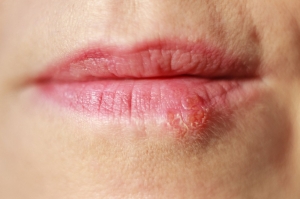Dealing with skin allergies can be incredibly frustrating. Whether it's an itchy rash, redness, or swelling, these conditions can significantly impact your daily life. If you've been struggling with skin allergies, you might wonder, "Can a dermatologist in Dubai help?" The short answer is yes—dermatologists are experts in identifying and treating skin conditions, including allergies. In this article, we'll explore Dermatologist Dubai can provide the care you need to manage your skin allergies effectively.
Understanding Skin Allergies
Skin allergies occur when the body's immune system reacts abnormally to a substance it considers harmful, even though it may not be. Common triggers include environmental factors like pollen, animal dander, food, or chemicals in beauty products. These allergies can lead to various skin reactions such as hives, eczema, rashes, and contact dermatitis. It can sometimes be challenging to pinpoint the exact cause, but that's where a dermatologist comes in.
How a Dermatologist Can Diagnose Skin Allergies
When you visit a dermatologist for skin allergies, the first step will usually be an in-depth consultation. During this visit, the dermatologist will discuss your symptoms, medical history, and potential triggers. This helps them narrow down the possible causes of your skin issues.
To confirm a diagnosis, dermatologists may perform tests, such as:
- Patch testing: This involves applying small amounts of potential allergens to your skin and monitoring reactions over time.
- Skin biopsy: In rare cases, a small sample of skin may be taken for further examination.
These tests help dermatologists identify the root cause of the allergy, allowing them to develop a tailored treatment plan for your specific condition.
Treatment Options Available from Dermatologists
Once your dermatologist has identified the cause of your skin allergy, they will recommend a treatment plan designed to alleviate your symptoms and prevent future flare-ups.
Medical Treatments
Dermatologists in Dubai have access to a range of treatments to manage skin allergies. These include:
- Topical Treatments: Dermatologists may prescribe medications in the form of lotions or ointments that are applied directly to the affected areas. These treatments help soothe irritated skin and reduce inflammation.
- Oral Medications: In some cases, oral antihistamines or other allergy medications are necessary to reduce itching and swelling.
- Phototherapy: For certain skin conditions, light therapy can be an effective option. Phototherapy involves exposing the skin to controlled UV light, which can help treat conditions like eczema and psoriasis triggered by allergies.
Each of these treatments can significantly improve your quality of life, depending on the severity of the allergy.

Benefits of Seeing a Dermatologist for Skin Allergies
If you're struggling with skin allergies, seeing a dermatologist has numerous benefits that can help you regain control over your skin health.
- Expert Diagnosis: Dermatologists are trained to identify complex skin conditions and allergies, ensuring that you get the right treatment.
- Tailored Treatment Plans: With professional advice, you can receive customized treatment plans suited to your unique symptoms and lifestyle.
- Long-Term Management: A dermatologist can help you manage your skin allergies effectively, preventing recurring flare-ups and offering advice on how to avoid triggers.
- Peace of Mind: Having a professional handle your skin condition can provide peace of mind, knowing that you're in capable hands.
Post-Treatment Care and Lifestyle Adjustments
Once you've started treatment with a dermatologist, the journey doesn't end there. Post-treatment care plays a significant role in managing skin allergies in the long term.
Your dermatologist will likely recommend certain lifestyle adjustments, such as:
- Avoiding Known Triggers: A big part of managing skin allergies is identifying and avoiding allergens. This might include staying away from specific foods, fragrances, or environmental factors that trigger reactions.
- Skin Care Routines: Maintaining healthy skin can help prevent allergic reactions. A dermatologist will guide you on proper skincare routines, including gentle cleansing and moisturizing techniques.
By following your dermatologist's advice and sticking to a treatment plan, you can significantly reduce the likelihood of flare-ups.
When Should You See a Dermatologist?
It's important to seek professional help when you notice persistent or severe allergic reactions. If over-the-counter treatments aren't providing relief, or if your skin allergy is affecting your quality of life, it's time to schedule a visit to a dermatologist. They are experts at diagnosing and treating various skin conditions, and seeking timely medical advice can prevent your condition from worsening.
How to Find a Trusted Dermatologist in Dubai
Dermatologist in Dubai, and finding the right dermatologist is crucial for effective treatment. Look for a professional who is well-experienced in treating skin allergies and offers a personalized approach to your care. The best dermatologists listen to your concerns, conduct thorough assessments, and create tailored treatment plans for your specific needs.
Conclusion
If you're struggling with skin allergies, a dermatologist in Dubai can provide expert care to help you manage your symptoms and achieve long-lasting relief. Through accurate diagnosis, customized treatments, and guidance on lifestyle changes, dermatologists play an essential role in helping you regain control over your skin health. Don't suffer in silence—seek professional help today for a healthier, more comfortable future.






